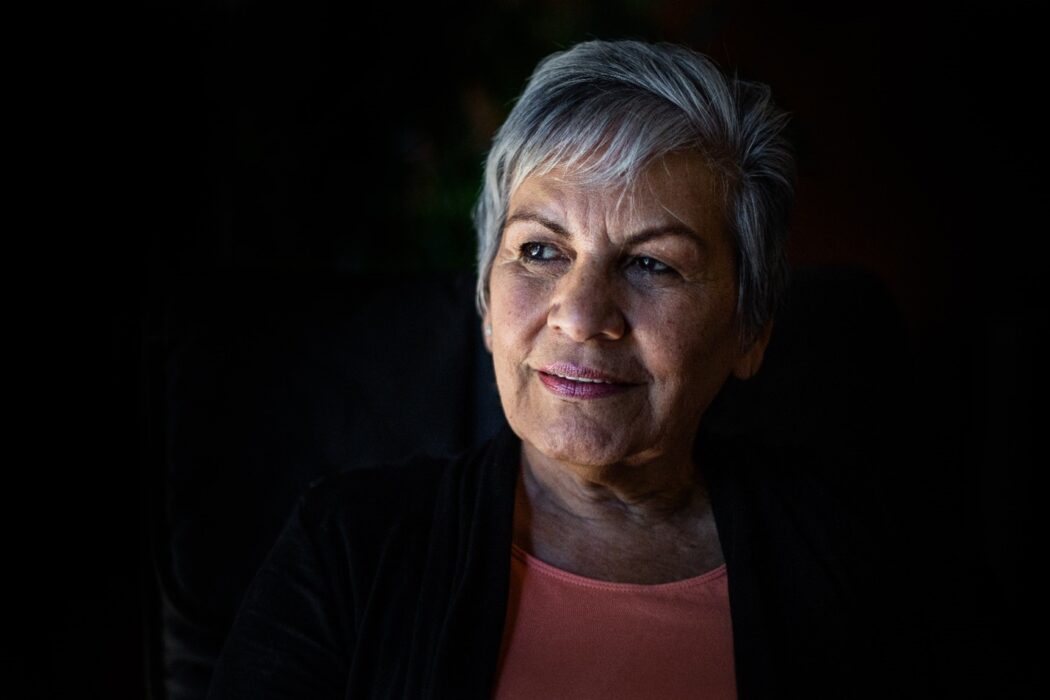Unmasking PTSD: How Occupational Therapy Supports Healing
Living with a mental health or substance use challenge is hard, and trying to hide it is even harder.
Mental Health Week 2025 invites us all to “Unmask Mental Health.” It’s a call to peel back the masks we hide behind—especially when it comes to conditions like Post-Traumatic Stress Disorder (PTSD).
PTSD can affect anyone who has experienced trauma, and its impact is personal and often invisible. From disrupted sleep to difficulty maintaining relationships or routines, the effects of PTSD can ripple through every aspect of daily life. Occupational Therapists (OTs) are trained to help individuals navigate these challenges, supporting them on their journey to recovery and renewed independence.
Understanding PTSD and the Mask We Wear
PTSD doesn’t always look how we expect it to. It can present in many ways, including:
- Flashbacks or intrusive memories
- Heightened anxiety or hypervigilance
- Avoidance of certain people, places, or activities
- Emotional numbness or difficulty concentrating
Because these symptoms can be difficult to explain—or even recognize—many people “mask” their struggles to maintain a sense of normalcy. Stigma, shame, or fear of being misunderstood can lead to avoidance behaviors and self-stigma, making healing even more challenging.
Unmasking these hidden struggles is a powerful first step toward healing. By acknowledging our mental health challenges, we can access the support we need to recover.
How Occupational Therapy Helps with PTSD
1. Creating a Safe Space for Unmasking
Occupational Therapists provide a compassionate, judgment-free environment where clients can begin to unpack their experiences. OTs help individuals build self-awareness and learn emotional regulation techniques that reduce overwhelm and increase a sense of control.
2. Helping with Daily Routines and Independence
PTSD can make even simple daily tasks feel overwhelming. OTs support clients in:
- Identifying and managing triggers during everyday activities
- Returning to previously avoided daily activities
- Rebuilding routines that conserve energy and reduce stress
- Using pacing and prioritization techniques to avoid burnout
- Implementing gradual exposure strategies in safe, real-world settings to rebuild confidence
3. Mind-Body Connection: Regaining Control
Healing from trauma involves more than just talking. Occupational Therapists use sensory-based interventions, such as grounding exercises, to help clients stay present. Mindfulness strategies and breathing techniques can reduce anxiety and reconnect clients with their bodies in a safe, empowering way.
4. Supporting Work & Social Life
Whether returning to work, school, or social activities, PTSD can create barriers that feel insurmountable. OTs provide:
- Tailored strategies for reintegrating into the workplace
- Techniques to reduce social isolation
- Support in accessing community resources to build a strong, supportive network
Breaking the Stigma: How You Can Help
Unmasking mental health is a collective effort. You can support this movement by:
- Starting open conversations about PTSD and mental wellness
- Encouraging loved ones to seek professional help when needed
- Offering support without judgment—sometimes just listening can make a big difference
This Mental Health Week let’s challenge ourselves to unmask PTSD and other hidden mental health conditions. With the right support, healing is possible. Occupational Therapists are here to walk alongside individuals as they rebuild their lives, routines, and sense of self.
If you or someone you know is struggling, don’t wait. Reach out for help today.
Resources
- Crisis Support: Talk Suicide Canada (1-833-456-4566)
Contact Us
Looking for support from an Occupational Therapist? Our team is here to help.
Email: referrals@ot-works.com
Phone: 604.696.1066 ext. 1000.
Empowering Veterans: OT Works! Supports Veterans and RCMP Service Members on Their Journey to Post-Service Life
At OT Works!, we take pride in being able to serve our veterans through Veterans Affairs Canada (VAC). Our Occupational Therapists (OTs) can play a large role in guiding service members as they transition back into civilian life. We understand that this journey can be challenging, and that’s why we create personalized treatment plans to assist our clients in enhancing their daily life management.
As experts in functional rehabilitation, our OTs understand the difficulties that veterans and their families may face during this transition period. Our therapists build upon the service member’s existing skills, fostering efficiency, safety, and independence.
Under contract with VAC, OT Works! therapists provide Occupational Therapy assessments and treatment. These interventions encompass a wide spectrum, including:
- home adaptations
- assistive device prescriptions (including wheelchairs and scooters)
- mental health support
- managing disrupted routines, and
- tackling occupational challenges arising from traumatic brain injuries.
How Can an OT Help?
Our commitment is to provide personalized and effective treatment not only to veterans but also to their families. As community-based occupational therapists, we meet our clients in their environments, whether it’s their workplaces, schools, gyms, homes, or communities.
We value the rich diversity of experiences our clients bring to the table and have established a rigorous Quality Assurance process to ensure they receive the care they truly deserve. OT Works! takes pride in helping our veterans become the best version of themselves.
We extend our support to those with physical injuries, such as soft tissue injuries, orthopedic conditions, and brain injuries, as well as those dealing with trauma-induced or exacerbated mental health conditions like PTSD, depression, and anxiety. Additionally, our clinical expertise extends to chronic pain and operational stress injuries.
Services we offer
Our Occupational Therapists employ evidence-based, trauma-informed care strategies. We place a strong emphasis on compensation and goal-oriented treatment plans, assisting clients by:
- Providing educational insights into injuries, current abilities, and recovery, such as pain management and typical recovery timelines.
- Working to enhance and expand current abilities or skills, whether it’s increasing lifting tolerance or improving emotional regulation.
- Adapting materials and environments, from adding a bench in the shower to assessing the need for a power wheelchair.
- Recommending environmental changes, including connecting clients with specialized public transportation options or advocating for workplace accommodations.
Our Experience with VAC Clients
Our OTs are passionate about working with veterans and boast extensive experience in addressing their unique needs. Some of our team members have been dedicated to serving veterans for many years. We understand the distinctive challenges and requirements of veterans, thanks in part to our Clinical Director, Pamela Russell, who grew up in a military family. Her father served as a military member, with her mother supporting veterans through a career with Veterans Affairs Canada. This understanding of both military and civilian life ensures our client-centered services celebrate your strengths and competencies, ultimately helping you manage everyday tasks efficiently, safely, and as independently as possible.
Areas served
Our services extend across various regions, including:
- Metro Vancouver: Vancouver, Burnaby, New Westminster, Surrey, North & West Vancouver, Richmond, Delta, White Rock, Port Moody, Coquitlam, Port Coquitlam, Langley, Fort Langley, Maple Ridge, Pitt Meadows.
- Fraser Valley: Mission, Abbotsford, Chilliwack, Harrison Lake, Agassiz, Dewdney, Hope.
- Sea-to-Sky: Squamish, Whistler, Pemberton.
- Vancouver Island-South: Victoria, Esquimalt, Sooke, East Sooke, Saanich, Sidney, Langford, Colwood, Metchosin.
- Central Island: Ladysmith, Nanaimo, Parksville, Qualicum Beach, Port Alberni.
- North Island: Campbell River, Courtney, Comox, Cumberland, Fanny Bay, Nanoose Bay, Union Bay.
Referring a Veteran
Referring a veteran to OT Works! is a straightforward process:
- VAC Case Managers: Send your referral through the BHSOL portal.
- RCMP Case Managers: Feel free to send the referral to us via email, fax, or give us a call to discuss.
- Veterans: If you’re a veteran unsure of your needs, please discuss them with your Case Manager. If you have any questions or uncertainties, don’t hesitate to contact us, and we’ll be more than happy to assist you.
Get started with an OT
If you or someone you know could benefit from the guidance of a skilled occupational therapist, we invite you to reach out to us today:
Email: referrals@ot-works.com
Phone: 604.696.1066 ext. 1000.
At OT Works!, we are dedicated to supporting veterans as they embark on their post-service journeys towards a fulfilling and independent life.
Exposure Therapy and OT
After an emotionally difficult experience you may find it challenging to fully participate at work, at home or in social situations. Exposure therapy is a treatment Occupational Therapists use to increase a client’s ability to function after trauma. OTs use exposure therapy to address anxiety, fear and discomfort so that you can actively engage in you community and life again.
What is Exposure Therapy?
Exposure therapy helps clients improve their ability to differentiate between safe and unsafe situations. With an OT’s help, they can reduce the physical, emotional, cognitive and social symptoms of trauma. Early intervention along with repetition empowers clients to better manage their response to triggers.
When someone experiences anxiety about specific people, places or things, they often avoid those situations. While this can reduce the discomfort in the short term, longer-term solutions are better. Interrupting the cycle of fear, through exposure therapy, allows a person to better recognize which beliefs are accurate and which have become overrun by emotions and difficult memories.
How is Exposure Therapy done?
- Education: Discuss how avoidance behaviours fuel anxiety.
- Which safety habits does the client use in order to reduce anxiety in the triggering situation?
- What thoughts and beliefs about the situation may be inaccurate or not helpful?
- Develop a structured plan to overcome the anxiety.
- The OT and their client develop an exposure hierarchy by grading all the aspects about the situation that causes anxiety. They assign each a score that ranges from 0/10 (no anxiety) to 10/10 (most anxiety ever).
- Based upon these scores, the OT and client develop a step-by-step plan to address each aspect of anxiety. Initial sessions should work through less anxious tasks and later sessions should address those that cause more anxiety.
- In the final sessions, the client aims to manage their anxiety effectively so that they can engage in the formerly stressful situation with a calm and clear mindset.
- During each session: Consider how long to continue with the session before it is complete.
- Researchers suggest that the client and OT stay in the situation until their level of fear drops by 50%. If the client considered their anxiety to be a 8/10 initially, they should wait until it is a 4/10 before concluding that exposure step.
Meet Kadie: A Case Study in Exposure Therapy
After an isolated and traumatic event occurred during her work as a social worker, Kadie feared her safety whenever she came near the site of the incident. Jennifer MacDonald, a senior therapist with OT Works! started working with Kadie after she had been off work for 6 months. They used a team-based approach to organize the exposure plan with the rest of Kadie’s healthcare team and social network. They had one-on-one sessions that gradually reintroduced her back into her work role. At discharge, Kadie was able to return to work independently, equipped with the tools and skills to work effectively without tirelessly worrying about her safety. With exposure therapy, Kadie built up confidence in her ability to manage feelings of anxiety.
How can OT Works! help?
Our occupational therapists are experienced in exposure therapy. They have helped many clients face their fears and reduce their anxiety. Our clients are able to return to their daily activities and enter unfamiliar situations equipped with the tools that are gained from exposure. All of our therapists are certified with the College of Occupational Therapists of British Columbia (COTBC) and many have additional training in mental health treatment.
If you or anyone you know could benefit from exposure therapy, contact us at referrals@ot-works.com or 604.696.1066 ext. 1000. We can connect you with one of our therapists and make recovery more attainable for everyone.
Additional Resources
To learn more about exposure therapy, check out these resources:
- American Psychological Association – Exposure Therapy
- Anxiety Canada – Facing Fears
- HealthLink BC – Exposure Therapy
- Very Well Mind – How Exposure Therapy Can Treat PTSD



